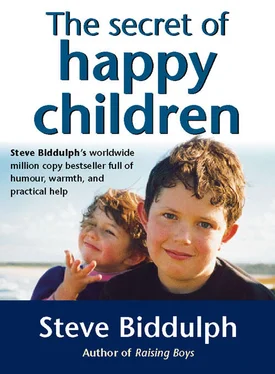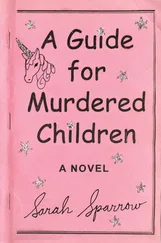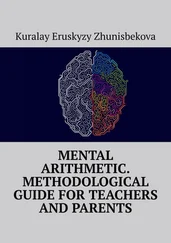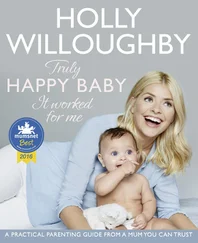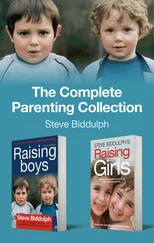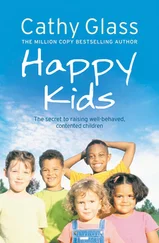It was once thought that kids were basically bad, and the thing to do was to tell them how bad they were. This would shame them into being better!
Perhaps you were brought up in this way. As a parent you simply hadn’t thought about self-esteem or the need to help children gain confidence. If so, I hope that what you are reading has changed your mind. Now that you realise how put-downs damage children, I’m sure you’ll be keen to stop using them.
When money is short, or you are overworked, lonely or bored, or because being at home isn’t enough for you, then you are much more likely to be destructive in what you say to kids.
3. You are down on your own reserves
The reasons for this are clear. When we are pressured in any way we build up a body tension which needs discharging. It actually does feel good to lash out at someone, in words or actions.
Children suffer because they are easier to get angry with than your spouse, boss, landlord, or whomever. It’s important to think it through: I feel so tense! Who am I really angry with?
The relief of lashing out is short-lived since the child is likely to behave even more badly as a result but at the time it feels like a release.
If this happens, it is vitally important that you find a safe way to let off steam.
Tension can be dissipated in two ways:
1) by vigorous action, such as hitting a mattress, doing some vigorous work, going for a brisk walk. This is no small matter – many a child’s life has been saved by being shut in its bedroom while a distraught parent walks for miles as a means of calming down;
2) by dissolving the tension through talking with a friend, finding affection from a partner (if you’re fortunate enough to have one) or through some activity such as yoga, sport or massage that releases tension out of your body.
Eventually, as a parent, you must learn to care for yourself as much as for your children. You actually do more for your kids by spending some time each day on your own (your health, your relaxation) than by being totally devoted to serving them.
So, that’s the end of the bad news. The rest of this book is about how to do it the easier way! It is possible to change, and many parents have told me that just hearing about these ideas at a meeting or on the radio has helped them immediately.
Already while you’ve been reading, your ideas have been changing. You’ll find that, without even trying, your behaviour with your children will start to be easier and more positive. I promise!
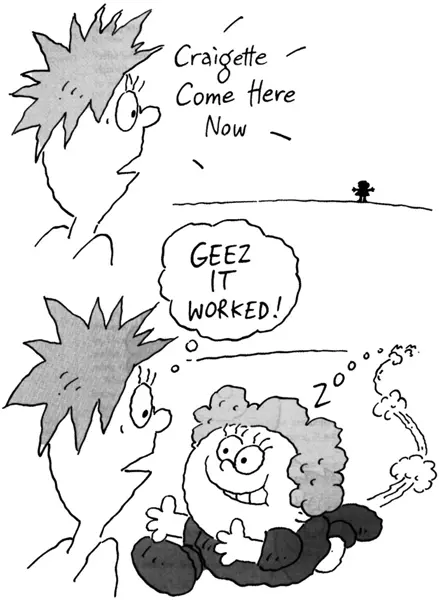
THE WAY YOU SAY IT – POSITIVE WORDING MAKES COMPETENT KIDS
It’s not only praise or put-downs that determine a child’s level of confidence. There are some other important ways we program our kids – particularly by the way we give instructions and commands – in a negative or positive choice of words.
As adults, we guide our own behaviour and feelings by ‘self-talk’, the chatter that goes on inside our heads. (‘Better not forget to get petrol’, ‘Oh geez I forgot my purse, I must be getting senile’ etc.) Psychologists are amazed at the differences between how healthy, happy people, and unwell or distressed people, talk to themselves mentally. Self-talk is learned directly from your parents or teachers. With your own kids then, it’s a great chance to put in all sorts of positive and useful data, which your child can internalise – a comfortable and encouraging part of themselves for life.
Children learn how to guide and organise themselves internally, from the way we guide and organise them with our words, so it pays to be positive. For example, we can say to a child, ‘For goodness sake don’t get into any fights at school today!’ or we can say ‘I want you to have a good time at school and only play with the kids you like’.
Why should such a small thing make a difference? It’s all in the way the human mind works. If someone offered you a million dollars not to think of a blue monkey for two minutes – you wouldn’t be able to do it (try it now if you don’t believe us!). If a child is told ‘Don’t fall out of the tree’, then they have to think two things: ‘Don’t’ and ‘fall out of the tree’. Because we used those words, they automatically create this picture. What we think, we automatically rehearse. (Imagine biting hard into a lemon, and notice how you react just to the fantasy!) A child who is vividly imagining falling out of a tree is much more likely to do so. Far better to use positive wording: ‘Hold on to the tree carefully’, ‘Keep your mind on what you’re doing’.
There are dozens of chances each day to get this right. Rather than say ‘ Don’t run out into the traffic’, it’s easier and better to say ‘ Stay on the footpath close to me’ – so that the child imagines what to do, and not what not to do.
Give kids clear instructions as to the right way to do things. Kids don’t always know how to be safe, so make your commands specific: ‘Tracey, hold on firmly to the side of the boat with both your hands’ is much more powerful than ‘Don’t you dare fall out’ or worse still ‘How do you think I’ll feel if you drown?’ The changes are small but the difference is obvious.
Of course, learning to talk like this doesn’t occur by waving a magic wand. You will still need to back yourself up with action. By using positive wording, you will be helping your kids to think and act positively, and to feel capable in a wide tange of situations, because they know what to do, and aren’t scaring themselves about what not to do.
SPECIAL DISCOVERY – NEW VITAMINS CHILDREN NEED
We all know about the vitamins A to K, which we need in our daily diet to thrive and grow. It is rumoured that scientists have recently discovered some more vitamins which are just as essential. Here they are:
VITAMIN M – for music. Naturally occurring in young parents, can be added to family’s diet immediately. Put on great music and dance with the kids in your living room – often. Pick them up if they are too small, and dance around with them. Sing in the car, collect favourite tapes. Have some simple instruments around. If you take your kids to music lessons, make sure they are satisfying, or at least good fun, for your child.
VITAMIN P – for poetry. Teach little chants and rhymes to toddlers. Older kids can recite and perform favourite short poems at family gatherings. Listen to stories and poetry on tape to enjoy the spoken voice.
VITAMIN N – for nature. Make chances for your children to experience total non-human environments. For little kids, a back yard will do – lots of wild insects and crawlies, bird-attracting shrubs and trees. But whenever you can, get into the bush, and go to the beach. Watch sunsets. Camp out. Closely related to Vitamin S for spirituality, sometimes available at churches, temples, mosques and similar.
VITAMIN F – for fun. Available anywhere. Rubs off from children onto adults, and back again. Most common vitamin in the universe. Not naturally present in the workplace, but can be smuggled in.
VITAMIN H – for hope. Hope is naturally occurring. You just have to make sure it isn’t removed by exposure to toxins. Avoid watching the news or viewing the world through newspapers. Don’t indulge in gloom-mongering around kids – especially teenagers. Join something that makes a difference – Greenpeace, Friends of the Earth, WWW – whose publications are incredibly positive. Research has shown that kids with even slightly activist parents are more mentally healthy, have a more positive view of the world and the future, and do more about it.
Читать дальше
